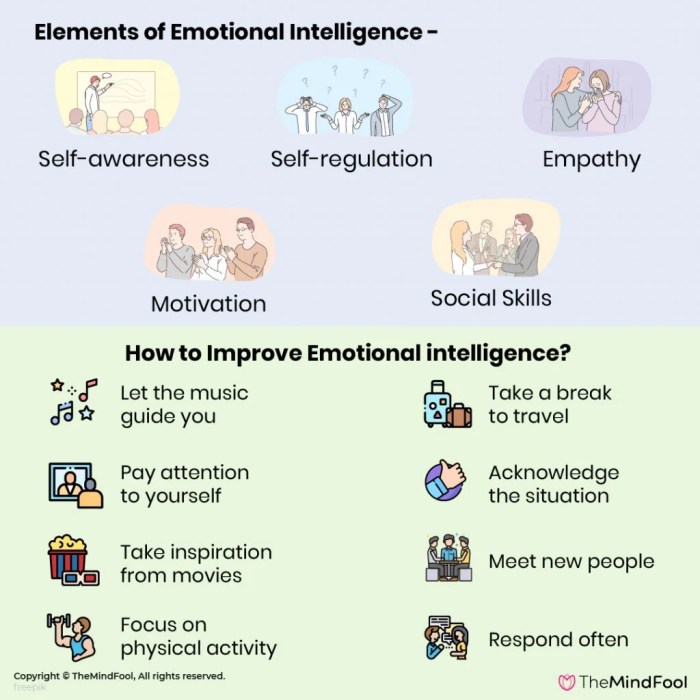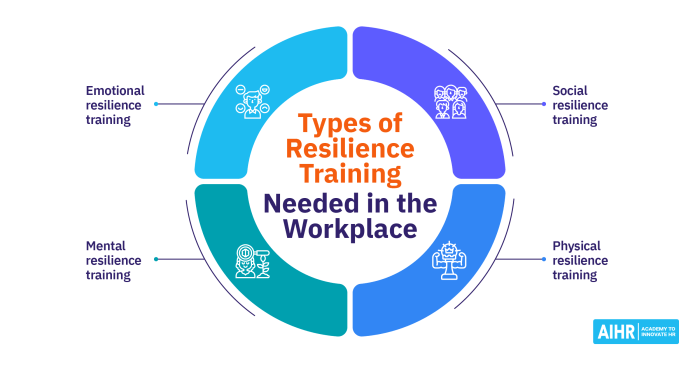How to Meditate for Increasing Your Emotional Resilience initiates a journey into the realm of meditation techniques tailored to bolster emotional strength and well-being.
Exploring the intricacies of emotional resilience and its relationship with mental health, this guide delves into various meditation practices designed to cultivate positivity and enhance emotional fortitude.
Introduction to Meditation for Emotional Resilience
Emotional resilience is the ability to adapt and bounce back in the face of adversity, stress, and challenges. It is a crucial skill that helps individuals navigate life’s ups and downs with grace and strength.
Emotional awareness is essential for personal growth and well-being. Through meditation, you can enhance your ability to recognize and manage your emotions effectively. Discover the benefits of mindfulness practices in improving emotional intelligence by visiting How to Meditate for Enhancing Your Emotional Awareness for practical tips and techniques.
Meditation plays a significant role in enhancing emotional resilience by calming the mind, reducing stress, and increasing self-awareness. Through regular meditation practice, individuals can cultivate a sense of inner peace and develop the mental fortitude needed to cope with difficult emotions and situations.
Benefits of Incorporating Meditation for Emotional Well-being
- Reduced Stress: Meditation helps lower cortisol levels, the stress hormone, promoting a state of relaxation and calmness.
- Improved Emotional Regulation: By practicing mindfulness meditation, individuals can observe their thoughts and emotions without judgment, leading to better emotional control.
- Enhanced Self-Awareness: Meditation allows individuals to connect with their inner thoughts and feelings, fostering a deeper understanding of oneself and others.
- Increased Resilience: Regular meditation practice builds mental resilience, enabling individuals to bounce back from setbacks and challenges more effectively.
- Better Coping Mechanisms: Meditation provides individuals with coping strategies to manage stress, anxiety, and negative emotions in a healthy way.
Understanding Emotional Resilience: How To Meditate For Increasing Your Emotional Resilience

Emotional resilience refers to the ability to adapt and bounce back from difficult situations, setbacks, or stressors. It involves coping with challenges, managing emotions effectively, and maintaining a sense of well-being despite adversity.Examples of situations where emotional resilience is crucial include facing job loss, dealing with the loss of a loved one, experiencing a breakup or divorce, navigating a serious illness, or going through a natural disaster.
In these instances, individuals with high emotional resilience can better cope with the emotional turmoil and stress associated with these events.The connection between emotional resilience and mental health is significant. People with higher emotional resilience are better equipped to handle stress, anxiety, and depression. They are able to regulate their emotions, maintain a positive outlook, and bounce back from setbacks more quickly.
Seeking total relaxation and restfulness? Meditation offers a powerful solution to calm your mind and body, promoting deep relaxation and rejuvenation. Explore the link for How to Meditate for Achieving Total Relaxation and Restfulness to embark on a journey towards inner peace and tranquility.
This, in turn, contributes to overall mental well-being and prevents the development of mental health issues.
The Benefits of Emotional Resilience, How to Meditate for Increasing Your Emotional Resilience
- Enhanced coping mechanisms in times of stress
- Improved emotional regulation
- Greater mental well-being and reduced risk of mental health disorders
- Stronger relationships and social support networks
Techniques for Meditating to Increase Emotional Resilience

When it comes to meditating to enhance emotional resilience, there are various techniques that can be beneficial in building inner strength and coping mechanisms.
When it comes to strengthening your inner focus and clarity, meditation plays a crucial role. By practicing mindfulness and deep breathing techniques, you can achieve a greater sense of awareness and concentration. To learn more about How to Meditate for Strengthening Your Inner Focus and Clarity , explore the link for valuable insights and guidance.
Mindfulness Meditation for Emotional Resilience
Mindfulness meditation is a powerful technique that can help in cultivating emotional resilience by increasing self-awareness and promoting a non-judgmental acceptance of emotions. This practice involves focusing on the present moment, observing thoughts and feelings without getting attached to them, which can lead to a greater sense of emotional balance and stability.
Guided Meditation Practices for Emotional Resilience
- Body Scan Meditation: This practice involves systematically bringing awareness to different parts of the body, helping to release tension and promote relaxation, which can be particularly helpful in managing stress and emotional distress.
- Loving-Kindness Meditation: This technique involves sending feelings of love, compassion, and goodwill towards oneself and others, fostering a sense of connection and emotional well-being, which can strengthen resilience in the face of challenges.
- Breath Awareness Meditation: By focusing on the breath, this practice can help in calming the mind, reducing anxiety, and increasing mental clarity, which are essential for building emotional resilience.
Creating a Meditation Routine for Emotional Resilience

Establishing a consistent meditation practice is essential for improving emotional resilience. By integrating meditation into your daily routine, you can better manage stress and build inner strength to face life’s challenges.
Tips for Establishing a Consistent Meditation Practice
- Set aside a specific time each day for meditation, whether it’s in the morning, during lunch break, or before bedtime.
- Create a dedicated meditation space in your home where you can relax and focus without distractions.
- Start with short meditation sessions and gradually increase the duration as you become more comfortable with the practice.
- Use guided meditation apps or videos to help you stay on track and maintain a sense of structure in your practice.
Ways to Integrate Meditation into Daily Life
- Practice mindfulness during everyday activities such as washing dishes, walking, or eating, to cultivate a sense of presence and awareness.
- Take short meditation breaks at work or school to reset your mind and reduce stress levels throughout the day.
- Use breathing exercises as a quick meditation tool to calm your mind and regulate your emotions in challenging situations.
Strategies for Overcoming Challenges in Maintaining a Regular Meditation Routine
- Be patient with yourself and understand that consistency takes time to develop. Don’t get discouraged by missed sessions.
- Experiment with different meditation techniques to find what works best for you and keeps you engaged in the practice.
- Join a meditation group or class to stay motivated and accountable in your meditation journey.
- Reflect on the benefits of meditation on your emotional resilience to stay motivated and committed to your practice.
Mind-Body Connection in Meditation for Emotional Resilience

The mind-body connection plays a crucial role in enhancing emotional resilience through meditation. By understanding how our thoughts and emotions are intricately linked to physical sensations, individuals can harness the power of meditation to cultivate resilience and emotional well-being.Breathing techniques in meditation serve as a powerful tool to regulate emotions and build resilience. Focused breathing exercises help individuals anchor themselves in the present moment, allowing them to observe their thoughts and emotions without judgment.
This practice enables individuals to create a sense of calm and stability, reducing the impact of stress and enhancing emotional regulation.
Impact of Meditation on the Brain and Emotional Regulation
- Meditation has been shown to activate brain regions associated with emotional processing and regulation, such as the prefrontal cortex and amygdala.
- Regular meditation practice can lead to structural changes in the brain, promoting neural plasticity and enhancing emotional resilience over time.
- Studies have demonstrated that meditation can reduce the activity of the amygdala, the brain region responsible for processing fear and stress responses, resulting in a decreased reactivity to emotional triggers.
- By fostering a sense of mindfulness and awareness, meditation helps individuals develop a greater capacity to manage and respond to challenging emotions effectively.
Cultivating Positive Emotions through Meditation

Meditation is a powerful tool that can help cultivate positive emotions such as gratitude and compassion. By incorporating specific meditation practices into your routine, you can foster emotional well-being and resilience. The long-term effects of regular meditation can significantly enhance your positivity and overall mental health.
Practicing Gratitude Meditation
- Begin by finding a quiet and comfortable space to sit or lie down.
- Take deep breaths and focus on the things you are grateful for in your life.
- Visualize these blessings and express gratitude for them in your mind.
- Repeat positive affirmations or mantras related to gratitude to enhance the feeling.
Cultivating Compassion through Loving-Kindness Meditation
- Sit in a relaxed position and bring to mind someone you care about deeply.
- Send them loving-kindness and well wishes silently in your meditation.
- Extend these feelings of compassion to yourself and then gradually to others in your life.
- Practice this meditation regularly to strengthen your sense of empathy and connection with others.
Long-Term Benefits of Regular Meditation
- Increased emotional resilience and ability to cope with stress and adversity.
- Enhanced self-awareness and mindfulness in daily life interactions.
- Improved overall emotional well-being and a more positive outlook on life.
- Boosted levels of happiness, contentment, and satisfaction with oneself and others.
By delving into the mind-body connection, breathing techniques, and the science behind meditation’s impact on emotional regulation, this guide equips you with the tools to navigate life’s challenges with resilience and grace.